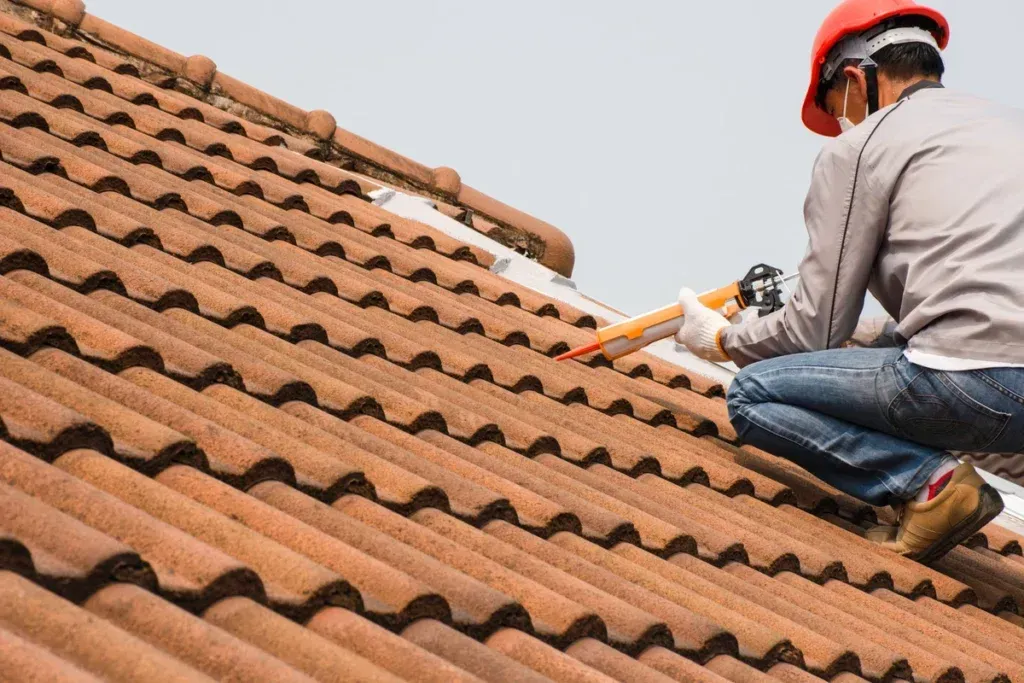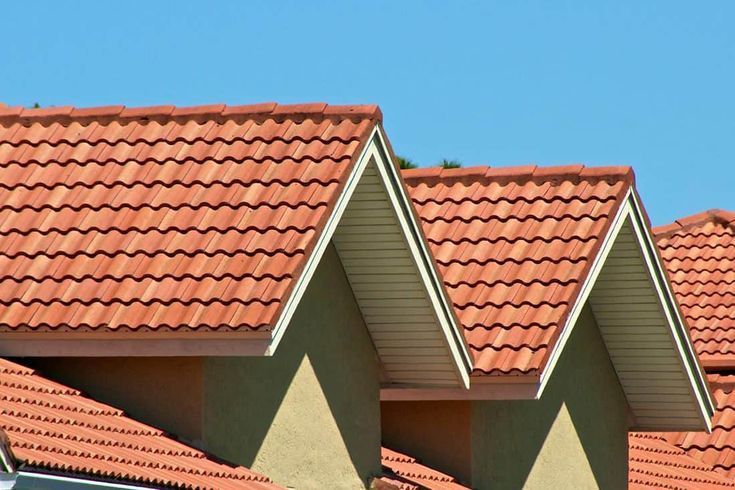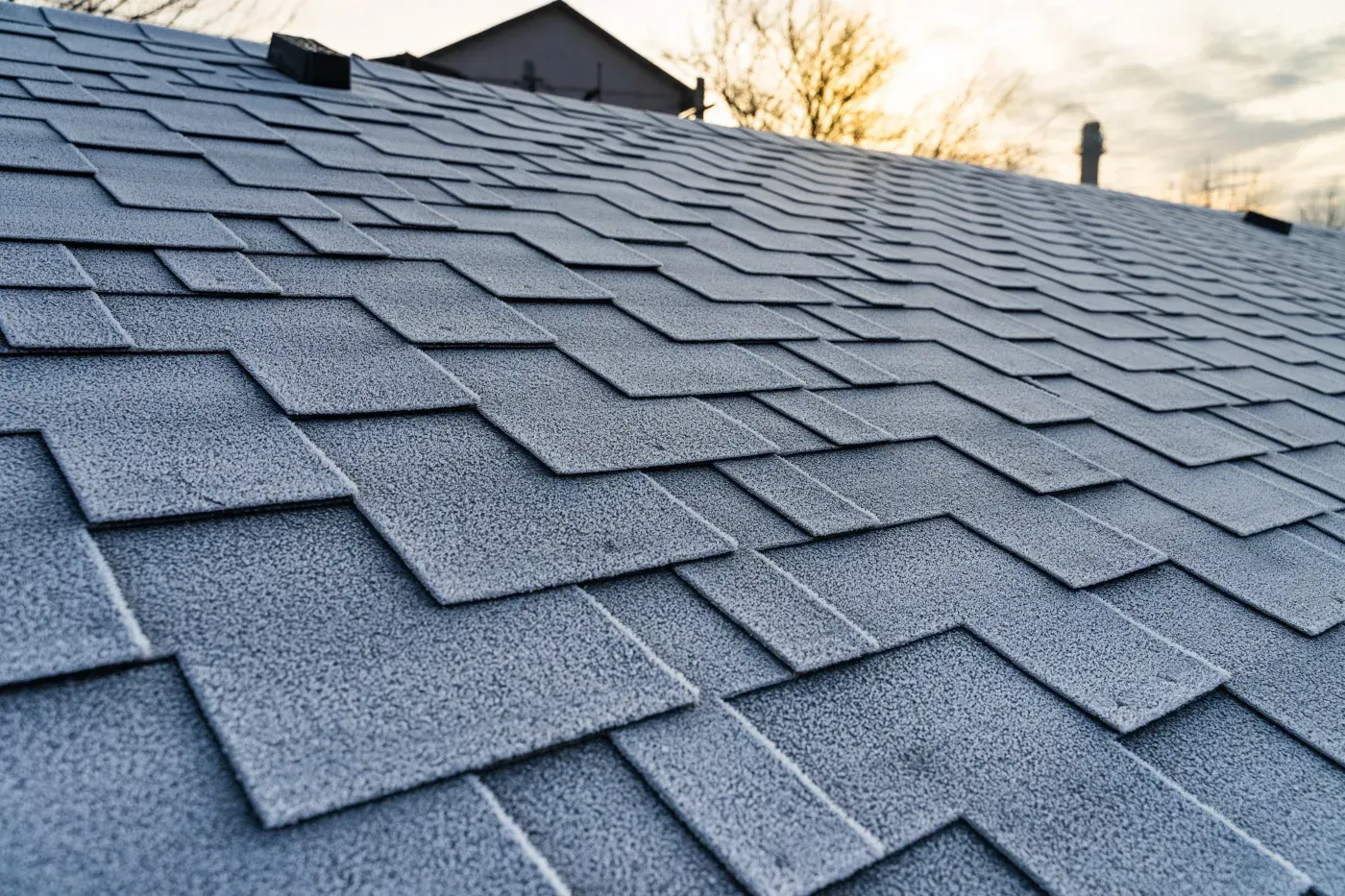Roofing in Suitland, MD: Expert Solutions for Elevated Durability and Style
Suitland, MD, is a suburban community just southeast of Washington, D.C., known for its diverse population and proximity to the capital. When it comes to roofing, Suitland residents face unique challenges due to the area's humid subtropical climate. With hot, humid summers, cold winters, and heavy rainfall, the roofs in Suitland must be equipped to handle a range of weather conditions. Understanding the local weather patterns and choosing the right materials are essential to ensure a roof’s durability, and roofing companies near me are a great resource for reliable service.

Climate and Roofing Needs in Suitland, MD
Suitland’s weather is characterized by hot, humid summers and cold, snowy winters, both of which place significant stress on roofs. Summer temperatures frequently reach the mid to upper 80s°F (29-31°C), with occasional heatwaves pushing temperatures into the low 90s°F (32-34°C). During these hot months, intense thunderstorms are common, often bringing heavy rain and high winds. On average, the area receives around 44 inches of rain annually, with the majority falling during the summer months. In winter, temperatures can drop below freezing, averaging lows in the 20s°F (-6 to -3°C). Snowfall typically ranges from 10 to 15 inches per year, but winter storms can occasionally bring heavier snow accumulation. These fluctuating temperatures, combined with moisture from rain and snow, can lead to problems such as roof leaks, ice dams, and other weather-related damage if roofs are not regularly inspected and maintained.
Popular Roofing Materials in Suitland
Roofing companies near me in Suitland provide a variety of roofing materials that can meet the area's needs. Each material has unique benefits that can handle the local weather patterns and environmental factors:
- Asphalt Shingles: Asphalt shingles are the most common roofing material in Suitland due to their affordability and ease of installation. They offer decent performance against rain and moderate snowfalls and are a popular choice for homeowners looking for a reliable roof that requires minimal maintenance.
- Metal Roofing: Metal roofing is a premium choice for homeowners in Suitland seeking long-lasting durability. Known for its resistance to moisture, wind, and even fire, metal roofing provides excellent protection against snow, rain, and ice, especially in the winter months. It also offers energy-saving benefits by reflecting sunlight in the summer, reducing cooling costs.
- Slate and Tile Roofing: For those seeking a luxury roof that will stand the test of time, slate and tile are excellent choices. These materials can last up to 100 years or more and provide exceptional protection against extreme weather. Slate and tile are also highly energy-efficient, offering natural insulation that helps regulate indoor temperatures.
- Synthetic Roofing: Synthetic roofing materials, such as rubber or polymer-based tiles, offer the aesthetic and durability of slate or tile without the high cost. These roofs are ideal for homeowners looking for a durable, weather-resistant roofing option with a modern look.

Roofing Services Available in Suitland, MD
Roof repair near me services are essential for keeping your roof in optimal condition. Whether you need a new roof installed, an existing one repaired, or ongoing maintenance, local roofers near me in Suitland can handle all your roofing needs. Here are the key services provided by roofing contractors near me:
- Roof Installation: Installing a new roof requires skilled professionals who can choose the right materials and ensure proper installation. Contractors offer a variety of roofing materials that are best suited for Suitland’s climate, ensuring that your roof provides maximum protection.
- Roof Repair: Regular roof repair near me services are important to address issues like leaks, broken shingles, or damaged flashing. Roofs can deteriorate due to the region’s intense storms or snow accumulation, and quick repairs can prevent more costly damage in the future.
- Roof Maintenance: Roof maintenance is crucial for extending the lifespan of your roofing system. Regular inspections by qualified contractors can catch minor issues before they become major problems, helping you avoid expensive repairs later on.
- Gutter Installation and Repair: Proper drainage is essential for protecting your roof and foundation. Installing new gutters or repairing existing ones ensures that rainwater is directed away from the building, preventing water damage.
Choosing the Right Roofing Contractors in Suitland
When searching for roofing companies near me in Suitland, it is essential to consider the reputation and expertise of contractors. Whether you need roof repair or a new roof installation, the quality of work and service should be your priority.
- Experience and Expertise: Choose roofing contractors near me with significant experience in the industry. This ensures they are familiar with local weather conditions and can handle roofing materials suited to Suitland’s climate.
- Licensing and Insurance: Always verify that contractors are properly licensed and insured. A licensed contractor meets local building codes, while insurance protects you from liability in case of accidents or damage during the project.
- Customer Reviews: Reading reviews from past clients is an effective way to gauge the quality of service. Look for roofers who are known for their professionalism, reliability, and excellent customer service.
- Warranties: Reputable contractors should offer warranties for both materials and labor. A warranty gives you peace of mind that the roof installation or repair will be done properly and will last for years.
- Quality of Materials: The materials used in roofing projects are critical to the roof’s longevity. Whether you are installing metal roofing, asphalt shingles, or another material, make sure that the contractor uses high-quality products that are designed to perform well in Suitland’s weather conditions.

Invest in Quality Roofing in Suitland for Long-Term Protection
Roofing in Suitland, MD, requires a deep understanding of local weather patterns, climate, and the specific needs of homeowners and businesses. Whether you’re looking for roof repair or installation services, choosing the right roofing contractors near me is essential to ensuring the durability and safety of your roof. From metal roofing to asphalt shingles, the materials available offer a variety of benefits depending on your needs.
By selecting a reputable, experienced roofing company, homeowners in Suitland can protect their properties from the elements and enjoy the peace of mind that comes with a well-maintained roof. Regular maintenance, timely repairs, and quality installation can extend the lifespan of your roof, ensuring it remains a strong barrier against Suitland’s challenging weather for many years to come.
FAQs
TPO roofing installations come with many common questions from our customers. We've gathered the most important information about costs, durability, brands, and maintenance to help you make informed decisions.
What are the factors influencing the cost of a TPO roof installation?
Several key elements affect TPO roofing costs. The size of your roof is the primary factor, as larger areas require more materials and labor.
The thickness of the TPO membrane impacts pricing significantly. We offer options ranging from 45 mil to 80 mil thickness, with thicker membranes costing more but providing enhanced durability.
Your roof's complexity matters too. Buildings with multiple penetrations, HVAC units, or unusual shapes require more detail work and flashing.
Accessibility affects labor costs. If your roof is difficult to reach or requires special equipment, this will increase the installation price.
How long does a TPO roof typically last under normal weather conditions?
TPO roofs installed by Washington DC Roofing Company typically last 20-30 years with proper maintenance. This lifespan depends on several factors including membrane thickness and local climate conditions.
The quality of installation significantly impacts longevity. Our certified installation team ensures all seams are properly welded and details are correctly finished.
Modern TPO formulations have improved UV and heat resistance compared to earlier generations. This enhancement helps maintain reflectivity and structural integrity over time.
Regular inspections can help identify and address small issues before they compromise the roof's lifespan.
Which TPO roofing brand shows the highest performance and reliability?
We primarily install GAF and Firestone TPO systems due to their consistent performance records and extensive warranties. These manufacturers have refined their formulations over decades.
GAF EverGuard TPO offers excellent heat and UV resistance with their advanced material science. Their products perform exceptionally well in Washington DC's varying climate conditions.
Firestone UltraPly TPO provides superior puncture resistance and flexibility, maintaining performance through seasonal temperature changes. Their seam strength is among the industry's best.
Both brands offer comprehensive warranty options that can extend up to 30 years when installed by certified contractors like us.
Are there any notable drawbacks when using TPO roofing for commercial buildings?
Installation quality is critical with TPO systems. Poorly welded seams can lead to leaks and premature failure, which is why we invest in ongoing training for our installation teams.
Some older TPO formulations had issues with premature aging and cracking. Today's improved materials have largely resolved these concerns, but choosing a quality manufacturer remains important.
TPO can be punctured by sharp objects, making regular roof inspections necessary. We recommend establishing maintenance protocols after installation.
While highly energy efficient, TPO's initial cost may be higher than some traditional roofing systems, though this is typically offset by energy savings over time.
Can a TPO roof be installed over an existing roofing system, and what are the considerations?
Yes, in many cases we can install TPO over existing roofing, potentially saving on removal costs and reducing landfill waste. This approach is called a "recover" installation.
The existing roof must be structurally sound and relatively dry. We conduct moisture scanning to detect any trapped water that could compromise the new system.
Building codes typically limit commercial buildings to two roof layers. We'll verify local regulations and assess your current roofing situation during consultation.
Proper preparation may include adding recovery board insulation to create a smooth, compatible surface for the new TPO membrane attachment.
Tell Us About Your Roofing Project
Contact Us
Our Newsletter
We will get back to you as soon as possible.
Please try again later.
Subscribe For Newsletter
All Rights Reserved | Washington DC Roofing Company
